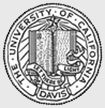We are collaborating with the FASTMath, SUPER, and QUEST SciDAC institutes in order to leverage the newest algorithmic and software advances in numerical methods, performance, and uncertainty quantification.
Collaborations with the SciDAC institutes have impacted many parts of the climate system through our project.
The FASTMath Institute focuses on advanced numerical methods and their efficient implementations for use in DOE SciDAC applications. We collaborate with FASTMath personnel on nonlinear and linear solver methods for implicit solutions to fluid equations in the dynamical core, on formulation and development of adaptive mesh refinement methods for the dynamical core (link to Hans’ page), and in time step convergence within atmospheric microphysics and between physics and dynamical core components.
The SUPER Institute focuses on research components in compilers and other system tools, performance engineering, energy management, and resilience. Our SUPER collaboration has been focused on optimization strategies for the MPAS-Ocean model. Recent contributions include detailed performance analysis, development of new load balancing approaches via hypergraph partitioning, improved cache behavior using space filling curves, and new performance visualization schemes. Ongoing work includes effective code threading in preparation for next-generation manycore systems.
The QUEST Institute focuses on efficient methods to determine the moments of subgrid microphysics variability, and on methods for constructing surrogate models over high-dimensional parameter spaces. On the QUEST side, both Kenny Chowdhary and Bert Debusschere are involved.









